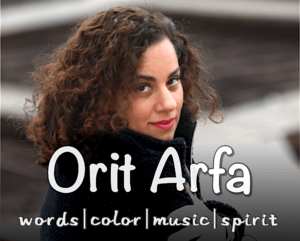Jerusalem Post, Billbard; March 9, 2007
‘There are pubs in Ireland that date back 800 years,’ Zabary explains. He fell in love with Irish pubs during his travels to Dublin, the home of Guinness. ‘I was amazed to see that people aged 40 and 50 hung out with 20- and 30-year-olds. What unites them is the beer.’
Surprisingly, Zabary doesn’t have any Irish roots, and looks more Sephardic than European. Born to a Yemenite father and a German mother, he brought the warmth of the East and the exactness of the German Ashkenazim to his establishments.
Before building the first Dublin pub in his native Rehovot five years ago, Zabary worked for several months as a bartender in Ireland – a self-imposed internship. A second Dublin pub made its home in Herzliya two years ago, and Jerusalem became the next logical location. The capital, Zabary says, is the third-largest market for draft beer in Israel, behind Rehovot and Haifa.
It should be clear to anyone who walks into Dublin that the pub wasn’t built as a passing fancy; a million-dollar investment made sure of that. Dublin’s over-done design – high Gothic ceilings, thick wooden furniture, authentic Irish chandeliers and ornate stained glass – is more reminiscent of a flamboyant Disneyland ride than a cozy Irish pub. Sitting areas are divided into two categories: the knights’ table for groups and ‘snugs’ for intimate encounters. No two dining areas are the same, so visitors can experience the pub differently every time.
Dublin is the kind of place where middle-aged couples can munch on finger food and throw back whiskey shots alongside 22-year-old guys mustering the courage required to approach a girl. To appeal to older crowds and reduce the smoky, ‘pick-up’ bar feel, the owners have invested NIS 400,000 in a smoke ventilation system, so bargoers don’t leave for home with the scent of cigarette ashes on their clothes.
That Dublin has chosen to plaster ads on Egged buses demonstrates its broad market: everyone is invited – rich, poor, young and old. The only thing in which Dublin customers cannot be pedestrian is their taste in beer. Carlsberg and Heineken aren’t considered respectable options at Dublin.
Beer consumption is a culture in Ireland, Zabary explains, with the many Irishmen drinking 15 pints a day. To boost the beer culture in Israel, Zabary focused on beer variety and professional preparation and presentation.
Beer kegs aren’t located under the bar, as in most Israeli drinking establishments, but in a special refrigerated ‘beer cellar’ built to European standards. The beer reaches the taps through an elaborate system of underground pipes. The custom-made beer glasses are washed in a separate dishwasher to make sure they don’t get contaminated with oil, milk or eggs, which can ruin the flavor and texture.
Dublin serves 18 kinds of beer on tap, some of them fruit-flavored. During off-hours, bartenders may offer samples in miniature two-inch mugs.
‘The phrase ‘beer is too bitter for me’ no longer applies in Israel,’ says Zabary. ‘Israelis used to say that because they didn’t know anything else.’
Dublin, Shamai 4, (02) 622-3612, Hours: daily from 5 p.m. – 3 a.m., Friday until 5 a.m. Musical line-up: Sunday: Eighties’ Israeli music; Monday: Israeli and cover bands; Tuesday: Irish bands; Weekends: DJ Freestyle
